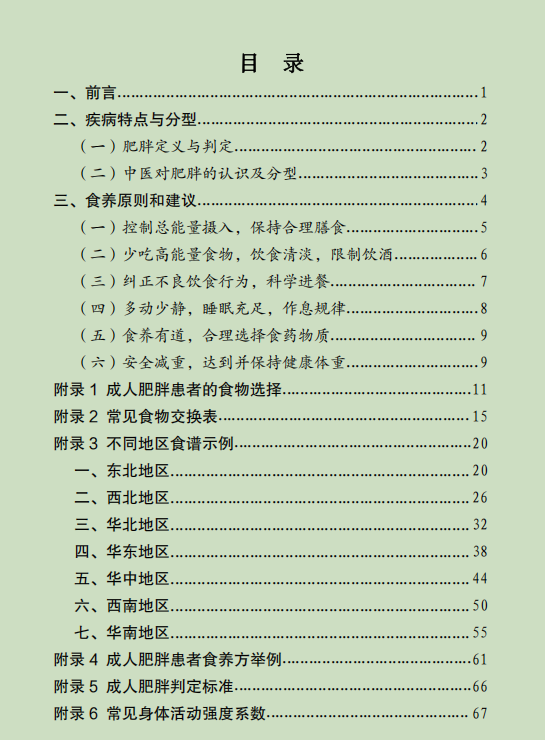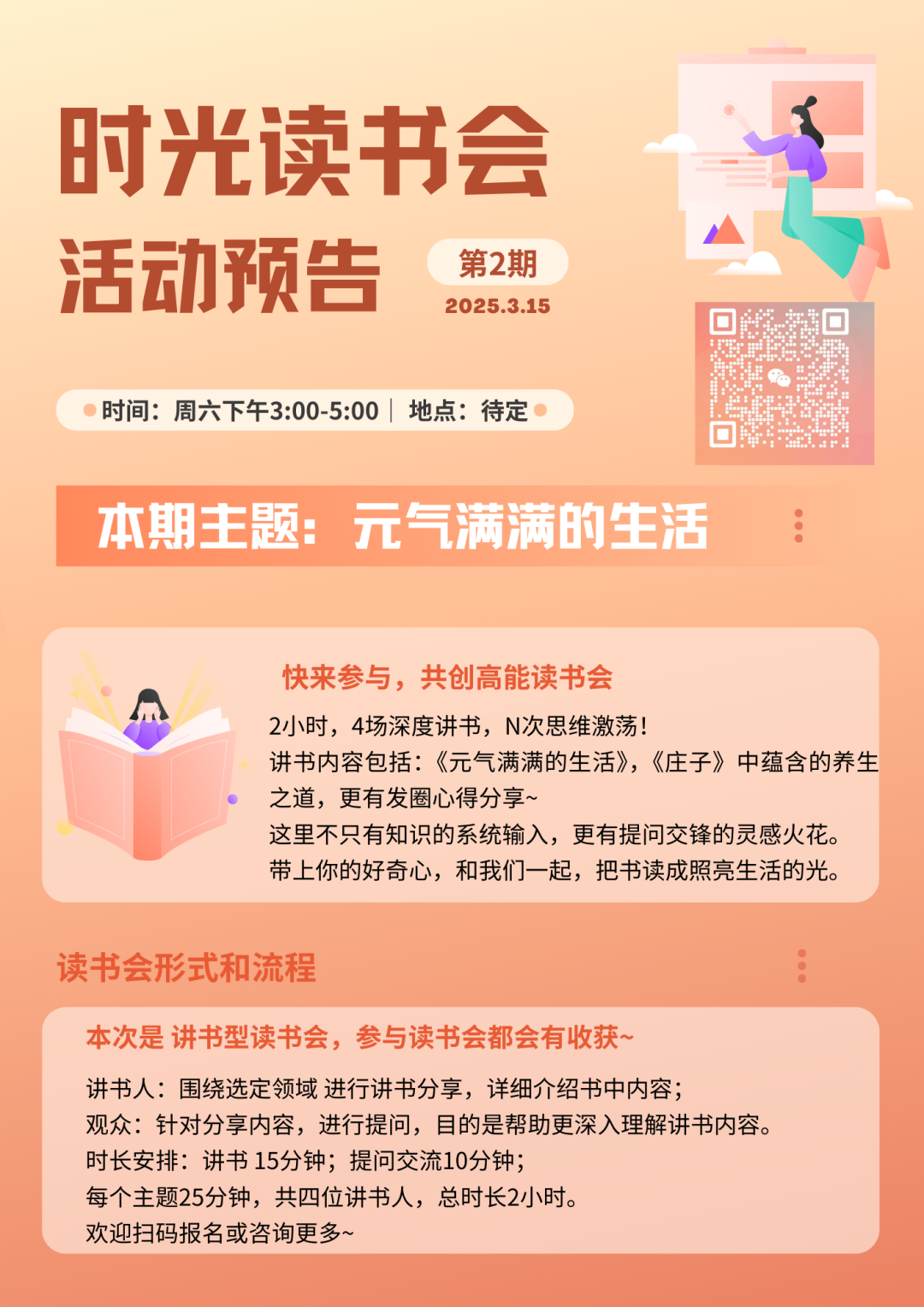《成人肥胖食养指南》
(2024年版)

Obesity has become a global health challenge, with the overweight rate and obesity rate among Chinese adults reaching 34.3% and 16.4%, respectively, and still rising. To address this trend, the National Health Commission’s Office released the “Adult Obesity Dietary Guidelines (2024 Edition)” in February 2024, combining modern nutrition science with TCM dietary therapy concepts to provide systematic guidance for obesity prevention and control.
1. Background and Objectives of the Guidelines
The guidelines aim to prevent and control the occurrence and development of obesity in the population, improve the weight of obese patients, adjust daily dietary structures, enhance residents’ nutritional health levels, and develop traditional dietary therapy services.
Based on dietary therapy, the guidelines propose basic principles and dietary examples for adult obesity patients, leveraging the complementary advantages of modern nutrition science and traditional Chinese medicine (TCM) theories and health management plans.
2. Wisdom of TCM Dietary Therapy
TCM dietary therapy emphasizes the concept of “food and medicine share the same source”. It provides different dietary therapy plans based on individual constitution, etiology, pathogenesis, and syndromes, playing a role in harmonizing Qi and blood, balancing Yin and Yang in the body, and assisting in disease prevention and treatment. For different constitutions of obese patients, selecting foods or medicinal substances with different characteristics can help achieve weight loss and maintain a healthy weight.
For example, for obese patients with stomach heat and stagnation syndrome, food and medicinal substances that clear stomach heat and promote digestion, such as tiepi shihu (Dendrobium officinale) and mali (barley), can be used. For patients with phlegm-dampness syndrome, substances that resolve phlegm and promote digestion, such as yi yi ren (Job’s tears) and ju pi (tangerine peel), can be selected.
3. Practices of Modern Nutrition Science
Modern nutrition science emphasizes that controlling total energy intake and maintaining a reasonable diet are key to weight management.
The guidelines recommend controlling total energy intake based on the daily energy needs of different populations, suggesting an average daily energy intake reduction of 30% to 50% or a reduction of 500 to 1000 kcal.
Additionally, it is important to ensure a reasonable proportion of the three macronutrients: fat should account for 20% to 30%, protein 15% to 20%, and carbohydrates 50% to 60%.
Furthermore, the guidelines suggest that obese patients choose whole grains, lean meats, low-fat dairy products, and soy products, increase their intake of vegetables and fruits, and reduce the consumption of high-energy foods.
4. Principles and Recommendations for Dietary Therapy
The guidelines propose six core principles and recommendations, including controlling total energy intake, maintaining a reasonable diet; eating less high-energy food, keeping meals light, and limiting alcohol; correcting unhealthy eating behaviors and eating scientifically; increasing physical activity and ensuring adequate sleep; practicing dietary therapy wisely and choosing appropriate food and medicinal substances; and achieving safe weight loss to reach and maintain a healthy weight.
Regarding controlling total energy intake, the guidelines recommend a daily energy reduction of 30%-50% (1200-1500 kcal for men, 1000-1200 kcal for women). In terms of keeping meals light, it is advised to reduce the intake of fried foods, baked goods, and candies, with daily salt intake ≤5g, cooking oil 20-25g, and limiting alcohol.
5. Personalized Meal Plans and Food Exchange Lists
The appendix of the guidelines provides various meal plans for different regions and seasons, such as low-fat warming soups for winter in the north and cooling recipes for summer in the south, along with food exchange lists for flexible substitutions of similar ingredients (e.g., 50g of rice ≈ 35g of oats).
Users can select corresponding food and medicinal substances based on specific syndromes, and those with conditions can undergo professional nutritional assessments and TCM syndrome differentiation, referring to meal plan examples to design personalized dietary nutrition therapy plans.
6. Advocacy for a Healthy Lifestyle
The “Adult Obesity Dietary Guidelines (2024 Edition)” is not only a weight loss plan but also a sustainable health lifestyle system.
By combining scientific eating, regular exercise, and TCM conditioning, ordinary people can achieve the goal of “healthy weight loss”. It emphasizes the importance of increasing physical activity and maintaining a regular sleep schedule, recommending 150-300 minutes of moderate-intensity aerobic exercise per week and ensuring 7 hours of sleep, which is relatively easy for the average person to achieve.
The “Adult Obesity Dietary Guidelines (2024 Edition)” combines TCM dietary therapy with modern nutrition science, providing scientific and practical dietary therapy plans for obese patients to assist in healthy weight management.
Download link: Adult Obesity Dietary Guidelines.pdf
Link: https://pan.baidu.com/s/16R09hxASwEqqxrxCmWI6rA Extraction code: 6666
Thank you for reading! More to share next time~
May we live our lives to the fullest~

Welcome to participate in this offline book club,
Let’s discuss
✔️Extracting health wisdom from traditional classics
✔️Understanding how to share daily work and life on social media
✔️How to become a speaker
……
Looking forward to creating more possibilities together!
Feel free to explore more related content
Guilin Time Book Club: May we be open-minded individuals in a broad world
[Watch 100 TED English speeches] How to make learning addictive like scrolling through social media
Essential guide to improving speaking skills – “The Power of TED Talks”
Writing for 100 days: Day 38 Cycle of growth
2024 Q4 WeChat article collection
Writing for 100 days Day 35|Three most anticipated events of 2025
Writing for 100 days Day 24|Annual review of 2024 keywords: Calm and unhurried
 Welcome to follow us so you don’t miss out!Feel free to like, share, or support us~
Welcome to follow us so you don’t miss out!Feel free to like, share, or support us~

